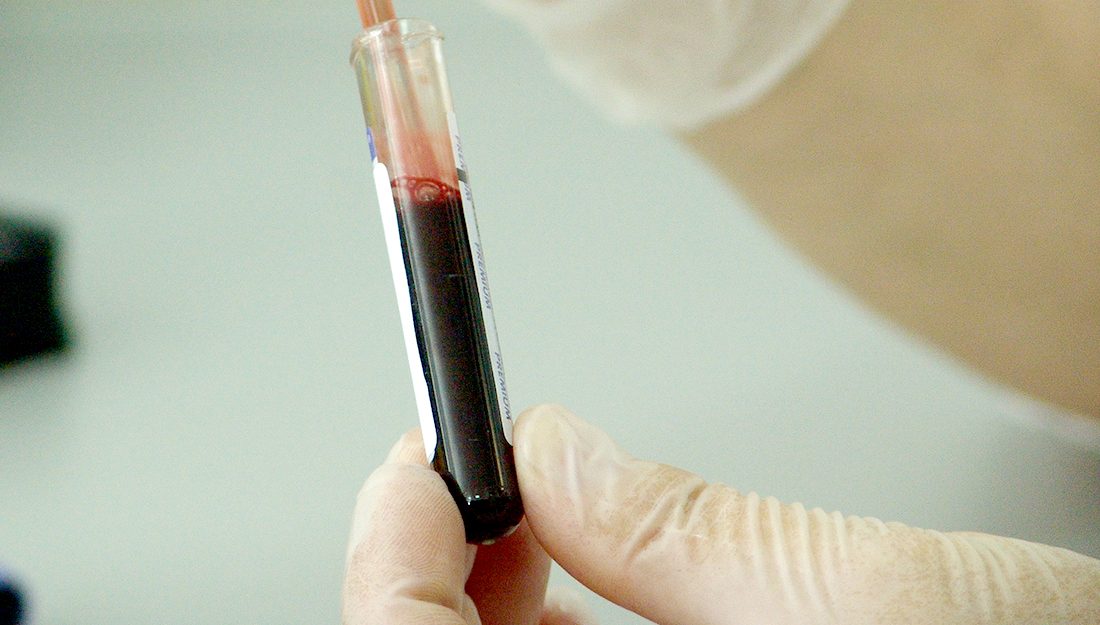Breaking down your CBC results

Look away if you have a fear of needles! If you’re still here, then you’re either a brave soul or are genuinely curious about what a complete blood count (CBC) can tell you about your health. Luckily, we have all the answers that you may have about what your CBC can show, with no sharp stings, Band-Aids or lollipops necessary.
What is a CBC?
Appropriately-named, a complete blood count is a detailed overview of your blood.
“It’s a panel of different tests that are used to determine if there are any problems that your blood can answer,” said Matt Hoffman, FNP, clinical assistant professor with the Texas A&M College of Nursing. “About 10 different tests make up a CBC, and they all measure different things that can tell us a lot about a patient’s blood and their overall health.”
What are those different tests?
A CBC measures a number of different things about your blood, including:
- red blood cells, which carry oxygen
- white blood cells, which fight infection
- hematocrit, the proportion of red blood cells to fluid component (measures thickness)
- platelets, the percent of blood volume which help with blood clotting
- hemoglobin, the amount of oxygen-carrying protein in red blood cells
While all of these may sound trivial, if a number is off, they can help us diagnose a condition.
“A couple of common conditions like anemia, infections or bleeding disorders can be easily confirmed with a CBC,” Hoffman said. “When we see someone come in and they are fatigued, pale or have a fever, we can check their CBC for a better look.”
What does our blood tell us?
Having numbers that are skewed from normal can tell us a lot about a person, but there are a few conditions that are most common.
White blood cells numbers are typically high after or during an infection, because their primary function is fight the invading pathogen.
If red blood cell counts, hemoglobin and hematocrit are low, then that typically points to anemia, a condition in which the blood doesn’t have enough healthy red blood cells. “Anemia can occur in a variety of ways,” Hoffman said. “It can occur because of an underlying condition, like kidney disease or infection, or through a dietary change or poor nutrition if the patient isn’t getting enough proper vitamins.”
Different types of chronic conditions, such are autoimmune diseases or cancer, can also create variation among CBC numbers—such as a lower amount of white blood cell counts. However, these more serious conditions are relatively rare and often have more serious symptoms, so don’t panic if your provider tells you your numbers are a little off.
Day-to-day variance
Your CBC numbers are not set in stone, and some day-to-day variance is expected.
“A CBC panel is supposed to monitor the overall health and keep track of how your body is responding to medication or illness,” Hoffman said. “Small variances can occur and that’s okay, but we are looking for what’s out of the normal ranges or if there’s been any drastic changes.”
There can be many different reasons for varying numbers. If you haven’t eaten, it can affect hematocrit numbers, or if you go to different labs for testing the reference numbers can be slightly different. Also, if a woman is pregnant or is on her period, that can potentially shift the numbers.
Hoffman also said that red blood cells recycle themselves about every four months, and while the body should regulate the amount of red blood cells that are active, it is possible for that to play a role in your numbers.
If you plan on getting a CBC panel done, ask your health care provider about necessary preparations. While a CBC panel won’t normally require you to fast, if your blood sample will be used for additional tests, you may need to not eat or drink for a certain amount of time.
Media contact: media@tamu.edu


